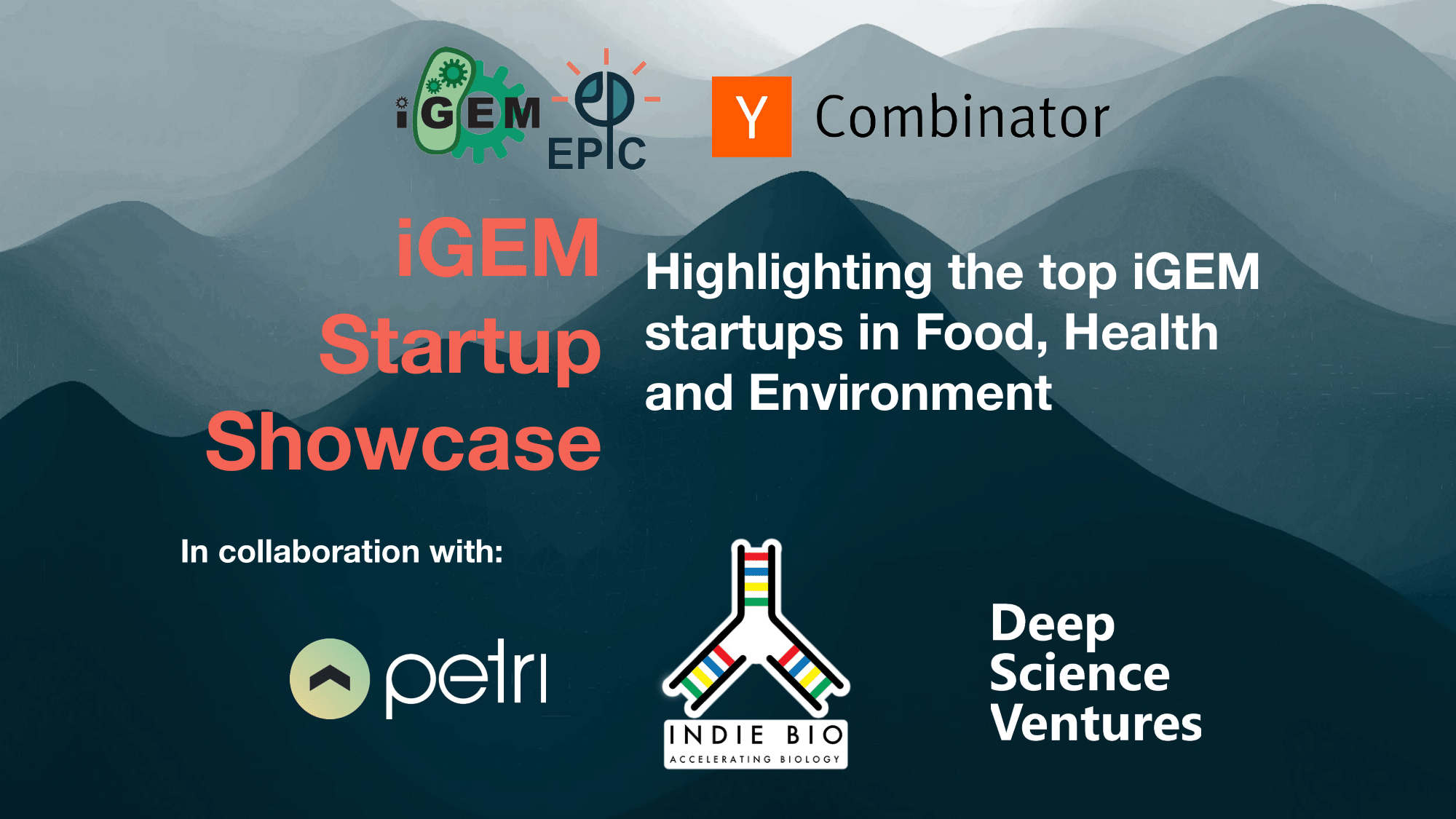How iGEMers Are Pursuing Entrepreneurship in Europe, Middle East and Africa
This year, iGEM launched EPIC, its pioneer entrepreneurship program to support the next generation of synthetic biology innovators and to help accelerate our transition to a more sustainable bioeconomy. The core of the program is focused on supporting iGEMers and researchers by connecting them to relevant co-founders, mentors, accelerators, investors and partners. EPIC’s activities include three global venture creation labs, mentorship programs and an annual startup showcase at the iGEM Giant Jamboree.
What would the future look like if just 10% of iGEM projects turned into real-world solutions?
One key question that drives us at EPIC is: “What would the future look like if just 10% of iGEM projects turned into real-world solutions?” So much knowledge and research generated every year through the iGEM competition doesn’t get to fulfill its potential despite being run by ambitious students who want to take the project further. EPIC’s programs aim to bridge these gaps by reviving discontinued projects and also enabling the continuation of iGEM projects right after the competition.
To explore that question, EPIC launched its global Venture Creation Lab (VCL), a three week regional bootcamp in the Europe, Middle East and Africa (EMEA), Asia-Pacific (APAC) and Americas for iGEM alumni to learn the fundamentals of entrepreneurship through design thinking, meet new co-founders and mapping out their go-to-market strategy.
Outcomes of the EMEA VCL
Our first VCL kicked off in the EMEA region in March of this year. 30 participants from 11 countries joined from the comfort of their homes thanks to the digitalization of the program. Despite the global consequences of the pandemic, the teams were highly motivated and exceeded many of our expectations. We were impressed by the teams’ demonstration of what was possible to accomplish in just three weeks’ time.
The EMEA VCL cohort of 2020.
The needs of the participants were quite different throughout the cohort. Some of the teams had already begun work on their project’s business case through the Entrepreneurship Track in iGEM, while others applied to the VCL without a startup idea or co-founders. The framework of the VCL is designed in a way that offers customized in-depth knowledge and feedback depending on the development stage of your startup, in addition to providing aspiring entrepreneurs the opportunity to meet co-founders and develop their new startup idea using design thinking.
The applied design thinking framework during the Venture Creation Lab
After an intense three weeks of brainstorming, business plan development and pitching, our first cohort of EMEA VCL participants had set the foundations for their Synbio startups. The teams worked to address a range of problems within the UN Sustainable Development Goals framework, focusing specifically on food, water, and health goals.
EMEA VCL Team Awards
From the nine EMEA VCL teams, Beefree, Ovulaid, Glacies Biosciences and Labiome were some of the outstanding teams that received awards at the conclusion of the program.
Team Ovulaid and BeeFree.
Beefree and Ovulaid consisted of members from the 2019 iGEM Technion and iGEM Copenhagen team respectively. They already had some entrepreneurial experiences from their work in iGEM’s Entrepreneurship Track and the VCL served as a great platform for them to continue building upon that journey. Beefree brought home the “Best in Sustainability” award as the startup that did the best job in incorporating the SDGs into their venture. Ovulaid left the stage having made the best impression on the investor panel and hence won the “Investors’ Choice” award.
Team Glacies Biosciences and Labiome.
The founders of Glacies Biosciences and Labiome were all geographically located at different places but could still join forces thanks to the VCL match-making process. Starting from scratch, these teams had to tackle the hurdles of collaborating on the ideation process remotely. Despite this, Glacies Biosciences managed to develop a project on extracellular matrices which won the ”Audience’s Choice” award at the final pitch event. Labiome settled on working with the vaginal microbiome and scored the Honorary Award by the VCL coaches for showcasing the greatest enthusiasm and improvement throughout the program.
On behalf of the EPIC committee in EMEA, we’ve been thrilled to have gotten the chance to work with such a diverse cohort of people, cultures, backgrounds and ambitions. Our collaboration with the startup teams will continue during EPIC’s mentorship and fast-track program, during which teams will polish the final components of their business plans and work towards their first round of investments.
Since the conclusion of our EMEA VCL in April, APAC VCL activities in May we have just launched the Americas VCL taking place in June. Stay tuned to hear more about the new venture ideas from our remaining two regions!
To learn more about EPIC and how you can apply to next years’ VCL, please contact Will Wright and Albert Anis at will@igem.org & albert@igem.org
- Albert Anis | Co-Chair iGEM EPIC











